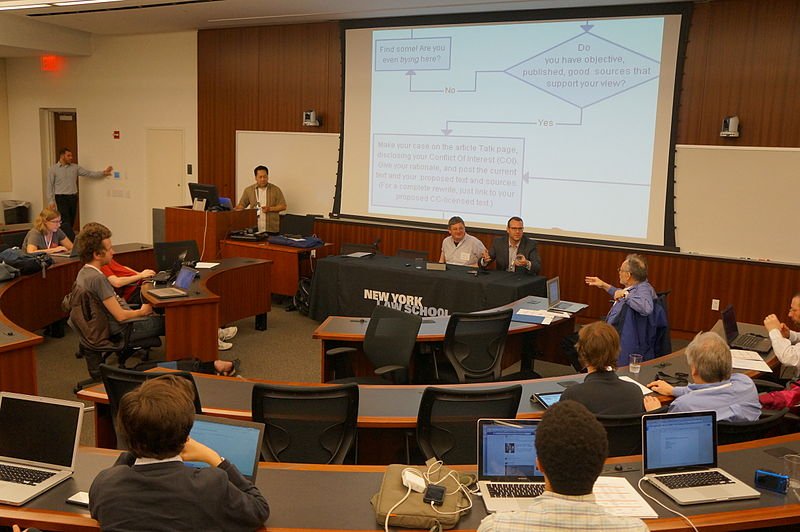How the PR Industry Views Wikipedia: A Conversation at WikiConference USA
Late last week I attended WikiConference USA in New York City. This was the first conference specifically for Wikipedians from the United States, and it brought together approximately 150 or so dedicated Wikipedians for three days of networking and collaboration. Although Wikipedia is a community based almost entirely on the Web, there's really nothing quite like taking an online project offline to move things forward. I took the opportunity of this conference to submit a panel discussion called "How the PR Industry Views Wikipedia", which was accepted and occurred on the afternoon of the first day. As you probably know if you are reading this, Wikipedia engagement is a major focus of Beutler Ink, and Wikipedia has been a personal and professional passion of mine for several years. With a foot in both worlds, I've been working over time to bring these two very different communities closer to each other. That's what this panel was about.
Joining me was Michael Bassik, who runs digital operations for MDC Partners, who was there to represent the traditional PR / marketing industry perspective. Moderating while sharing his own learnings was Andrew Lih, a professor of journalism at American University who quite literally wrote the book on Wikipedia.
As I suspected would be the case, Wikipedia editors present were eager to pose questions to Bassik about the kind of questions he gets from clients about their Wikipedia articles, and what he thought about employees editing Wikipedia.
Some were surprised to hear that he often tells clients not to edit Wikipedia, and he strongly discourages his employees from doing the same—hands off, it's just not worth the trouble. This is something I have heard from people at other firms as well. The catch, as Bassik noted, is that these organizations are very large, and it can be difficult to communicate the right thing to do at all levels of the company. It's easier just to say: stay away, although that isn't followed always, either. As one Wikipedian in the audience said, in a 2500-person company, I'm not worried about you in the leadership, I'm worried about employe #2499. Nearly every communications agency has a social media policy, but not every one has a Wikipedia policy. I'll bet that's going to change.
The proper role of public relations on Wikipedia is a very thorny topic, and one of the most vexing in Wikipedia's history. Considering this, I think it's quite remarkable that the panel and the hour-long discussion period after it was so agreeable and arguably even productive.
The question is not whether "paid editing" of Wikipedia will continue—of course it always will—but the question is how best to deal with it. No one is any longer thinking in terms of prohibition; now it's a question of which regulations create the best situation for all concerned.
As another editor said afterward, it seemed like we arrived at a "manageable pool of ideas". You can read some of them in a set of notes available online here, and the relationship between the public relations industry and the Wikipedia community is one you'll be hearing about from me again very soon.

